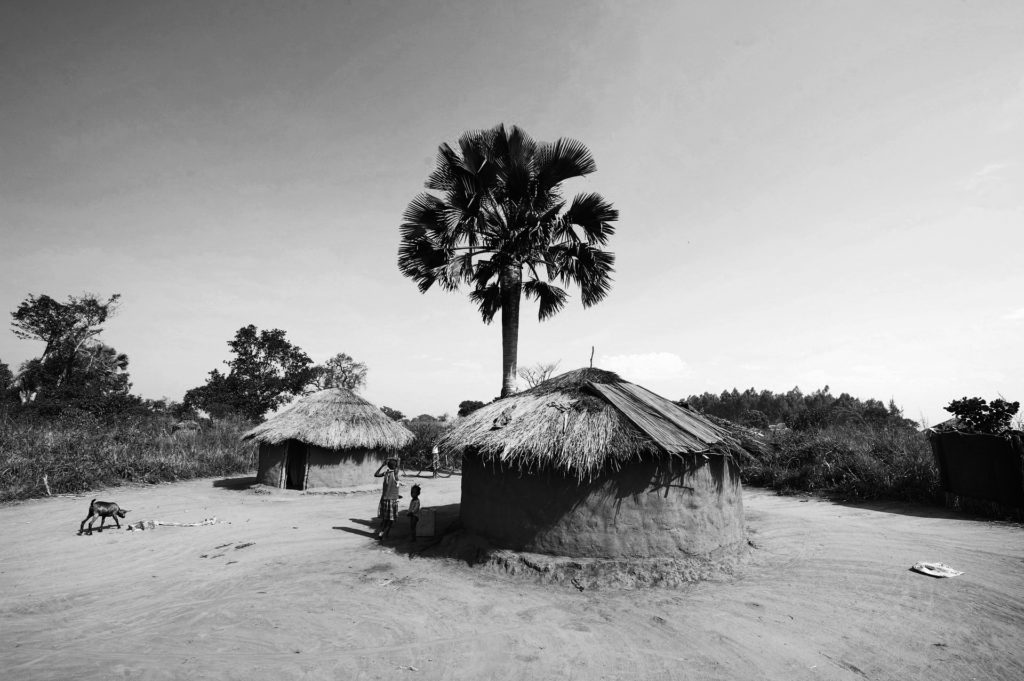Josephine Apira, an Acholi woman from northern Uganda, has been living in the UK since 1991 – but her passion for just governance in her homeland is her driving force. In 1986, it was her voice, as a refugee in Juba, South Sudan, which alerted the UN refugee agency, UNHCR, to what was going on in the villages of northern Uganda, where the army was looting, destroying crops and attacking civilians. As a result the agency set up refugee camps for Ugandans fleeing to South Sudan seeking safety.
‘Change of government in my homeland has mainly been through violence pitting one tribe or region against another,’ says Josephine. ‘In January 1986, the current government took power by force. They exploited the divides between ethnic groups, especially the progressive south against the marginalized north. They began a harsh repression in the north, arresting former government officials and replacing them with people from the president’s tribe and waging war on the civilian population.’
As the situation escalated, Josephine left her home in Gulu, expecting to return in two days after things settled down. ‘The journey back to Gulu is still on, 33 years later,’ she says. ‘In the end I had to abandon thinking about home to find safety for myself.’
People fled in fear of their lives. ‘Hit squads’ attacked villages, shot people by the roadside or at gatherings and funerals, and even herded people into buildings and then killed them. Over two million people were displaced. ‘I lost many family members, neighbours, friends and colleagues in this operation,’ says Josephine. Her mother was one of 22 villagers killed when the army attacked her village; when the army looted the family home, her brother was arrested and tortured and died two years later. Her children were scattered but managed to escape.

Village in Northern Uganda
She speaks of the rape of women and also men, often in front of their children, and of a ‘systematic’ focus on women peacemakers. Men found that they ‘had no place’ in their community after being ‘completely humiliated and destroyed’. ‘People have so many stories but we find it difficult to discuss. It’s not something we want to revisit.’ The violence has ‘silenced people from speaking up and calling for accountability and reconciliation’.
An agriculturalist by training, Josephine is one of a growing number of women leaders to emerge out of the chaotic political scene of northern Uganda. ‘Before the war pushed me out, the village was free and a safe place to grow up and live,’ she says. ‘I was running an internationally-sponsored project to supply subsidized farming implements to rural farmers and teach them what food crops to grow.’
The international perception has been that peace, tranquillity and economic success have returned to northern Uganda in recent years, but Josephine says that the abuses continue. She is determined to keep up the fight for human security in her homeland, and throughout Africa’s Great Lakes region. ‘I can’t give up,’ she says. ‘I keep talking and I keep asking questions.’
Today, Josephine is one of the ten founder members of the Ugandan Sustainable Development Initiative (USDI), which has been created by the diaspora in the UK to educate people about Uganda and advocate for change. ‘The way things are happening, we see the potential for violence, but this change must be peaceful,’ she says. ‘People have got so many emotional and psychological injuries.’
‘My journey is to see Uganda peacefully returned to civilian democratic government, where the rights, interest and welfare of all Ugandans are protected and promoted,’ she continues. She calls for ‘just governance, social and economic inclusion, ethical leadership, acknowledgement of injuries and victims and genuine reconciliation, and the protection of disappearing rainforest and wildlife, so people can begin to rebuild their lives’.
Josephine is an alumna of IofC UK’s Refugees as Re-Builders™ course, which, she says, taught her the importance of community cohesion and of listening. ‘Our communities try to work together but the amount of issues at home is so devastating. People keep getting into individual bitterness. We need to listen to each other so we know what the other person is feeling. This can help us understand where things went wrong and what can be done.’
In spite of all she had been through, she maintains a strong faith in the fundamental ‘goodness of people’ and of humanity. She draws her strength, she says, from her memories of ‘a very happy childhood’ before the war, in a village that was ‘a free place’. She speaks of her people’s deep attachment to trees and the land. ‘Everyone needs a place like that,’ she says.
Photographer: Yee-Liu Williams